The Intersections between the Concept of Islam Rahmatan Lil-Ālamin and the United Nations’ Sustainable Developmental Goals (SDG)
By: Ahmad Farouk Musa & Marilyn Ong Siew Ai
Abstract
‘And [thus, O Prophet,] We have sent thee as [an evidence of Our] Grace towards all the worlds (Rahmatan lil-ālamin)’ [Sūra al-Anbiyā’, 21:107]. Verily, the essence of the religion of Islam is embodied in the above verse which has now become the slogan of the new Malaysian government. This is the centrality of the perennial and universal message of Islam. The phrase ‘Rahmatan lil-‘ālamin’ brings the meaning of blessing for the entire world be it mankind, animals, land and seas, and the environment, and that this universal religion is a religion that promotes peace and harmony, and a cohesive relationship not only between man and man, but also man and his natural habitat. And if we were to consider the 2030 United Nations’ agenda for sustainable development, at the heart of these seventeen goals in the Sustainable Development Goals, is basically to achieve peace and prosperity for the people and the world, at present and into the future. The aim is to eradicate poverty and at the same time to improve health and education, reduce inequality, and stimulate economic growth, while at the same time, confronting the issues of climate change while preserving our earth. Many might not have realised that God had reminded us about this destruction on the earth and seas as an outcome of what men’s hands have wrought as in Sūra ar-Rūm, 30: 41, and is replete with verses exhorting man to preserve the environment and not to spread corruption (fasad) on earth as in Sūra al-Baqara, 2: 11. Similarly, the SDG’s goal to reduce inequality was propounded in the Qur’an in Sūra al-Hashr, 59: 7 where God prohibited wealth to be circulated solely among the rich. All in all, the Qur’anic idea of justice in the spirit of Rahmatan lil-ālamin is that, all that man possesses, therefore, is but held in trust from God.
Keywords: Sustainable Development Goals, Rahmatan lil-ālamin, Islamic ethics.
Introduction
 Contemporary historians have made the forceful observation that “there is no significant example in history, before our time of a society successfully maintaining moral life without the aid of religion”.[1] Extensive study of history suggests that moral upliftment and social solidarity are impossible without the moral sanctions that religion, as a collective force provided. The objective of this paper is therefore, to study “sustainable development” from an Islamic perspective by looking at the intersections between the Qur’ānic[2] perennial and universal Divine Message and the 2030 United Nations’ Agenda For Sustainable Development.[3] This will determine whether Islamic ethical values can serve to morally reinforce the “universal goals” for sustainable development (hereinafter referred to as “SDGs”) by a “global partnership” of UN member states, and to provide Muslim or Muslim-majority member states with the spiritual justification and persuasion for the implementation of the non-legally binding sustainable development goals. For this reason, the New Malaysia (Malaysia Baru), with its recently adopted “Rahmatan lil-ālamin (Grace upon all the worlds) administrative policy, serves as a suitable model to study. The scope of this paper covers the 3Ps (People, Planet, Profit), mentioned by the 2030 UN Agenda Preamble[4], but the Planet and the environmental SDGs[5] are dealt with at greater length, in order to examine in greater depth, the revealed Rahmatan lil-ālamin” [Sūra al-Anbiyāa, 21: 107] and other related revealed verses. The research methodology applied for this paper is a black letter comparative study of the intersections of the relevant Divine Declarations, Decrees and Exhortations in the Qur’ān and the SDGs.
Contemporary historians have made the forceful observation that “there is no significant example in history, before our time of a society successfully maintaining moral life without the aid of religion”.[1] Extensive study of history suggests that moral upliftment and social solidarity are impossible without the moral sanctions that religion, as a collective force provided. The objective of this paper is therefore, to study “sustainable development” from an Islamic perspective by looking at the intersections between the Qur’ānic[2] perennial and universal Divine Message and the 2030 United Nations’ Agenda For Sustainable Development.[3] This will determine whether Islamic ethical values can serve to morally reinforce the “universal goals” for sustainable development (hereinafter referred to as “SDGs”) by a “global partnership” of UN member states, and to provide Muslim or Muslim-majority member states with the spiritual justification and persuasion for the implementation of the non-legally binding sustainable development goals. For this reason, the New Malaysia (Malaysia Baru), with its recently adopted “Rahmatan lil-ālamin (Grace upon all the worlds) administrative policy, serves as a suitable model to study. The scope of this paper covers the 3Ps (People, Planet, Profit), mentioned by the 2030 UN Agenda Preamble[4], but the Planet and the environmental SDGs[5] are dealt with at greater length, in order to examine in greater depth, the revealed Rahmatan lil-ālamin” [Sūra al-Anbiyāa, 21: 107] and other related revealed verses. The research methodology applied for this paper is a black letter comparative study of the intersections of the relevant Divine Declarations, Decrees and Exhortations in the Qur’ān and the SDGs.
Sustainable Development
Sustainable development has been defined as “development that meets the needs of the present without compromising the ability of future generations to meet their own needs.” It calls for concerted efforts towards building an inclusive, sustainable and resilient future for People and Planet. For sustainable development to be achieved, it is crucial to harmonize three core elements: economic growth, social inclusion and environmental protection. These elements are interconnected and all are crucial for the well-being of individuals and societies.[6]
The Sustainable Development Goals
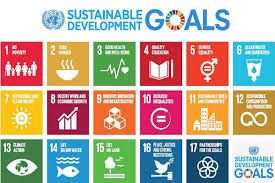 The official launch of the transformative 2030 Agenda for Sustainable Development (hereinafter referred to “the 2030 UN Agenda’) was ushered in and adopted by world leaders in 2016 at the United Nations when the Millennium Development Goals 2000-2015 era concluded.[7] The new Agenda calls on countries to begin efforts to achieve seventeen Sustainable Development Goals (SDGs) over the next fifteen years.
The official launch of the transformative 2030 Agenda for Sustainable Development (hereinafter referred to “the 2030 UN Agenda’) was ushered in and adopted by world leaders in 2016 at the United Nations when the Millennium Development Goals 2000-2015 era concluded.[7] The new Agenda calls on countries to begin efforts to achieve seventeen Sustainable Development Goals (SDGs) over the next fifteen years.
The SDGs and targets are as follows:
| Goal 1: | End all poverty in all its forms everywhere |
| Goal 2: | End hunger, achieve food security and improved nutrition and promote sustainable agriculture. |
| Goal 3: | Ensure healthy lives and promote well-being for all at all ages. |
| Goal 4: | Ensure inclusive and equitable quality education and promote lifelong learning opportunities for all. |
| Goal 5: | Achieve gender equality and empower all women and girls. |
| Goal 6: | Ensure availability and sustainable management of water and sanitation for all. |
| Goal 7: | Ensure access to affordable, reliable, sustainable and modern energy for all. |
| Goal 8: | Promote sustained, inclusive and sustainable economic growth, full and productive employment and decent work for all. |
| Goal 9: | Build resilient infrastructure, promote inclusive and sustainable industrialization and foster innovation. |
| Goal 10: | Reduce inequality within and among countries. |
| Goal 11: | Make cities and human settlements inclusive, safe, resilient and sustainable. |
| Goal 12: | Ensure sustainable consumption and production patterns. |
| Goal 13: | Take urgent action to combat climate change and its impact. |
| Goal 14: | Conserve and sustainably use the oceans, seas and marine resources for sustainable development. |
| Goal 15: | Protect, restore and promote sustainable use of terrestrial ecosystems, sustainably manage forests, combat desertification, and halt and reverse land degradation and halt biodiversity loss. |
| Goal 16: | Promote peaceful and inclusive societies for sustainable development, provide access to justice for all and build effective, accountable and inclusive institutions at all levels. |
| Goal 17: | Strengthen the means of implementation and revitalize the Global Partnership for Sustainable Development. |
The SDGs build on the success of the United Nations Millennium Development Goals and aim to go further to end all forms of poverty. “The seventeen SGDs are our shared vision of humanity and a social contract between the world's leaders and the people,” said UN Secretary-General Ban Ki-Moon.
The SGDs are basically to achieve peace and prosperity for People and Planet, at present and into the future. The aim is to eradicate poverty and at the same time to improve health and education, reduce inequality, and stimulate economic growth, while at the same time, confronting the issues of climate change while preserving our earth.
The focus of this paper however is on how the SDGs intersect with the Rahmatan lil-ālamin verse and other related Qur’ānic verses, on the relationship between humankind and the environment.
The essence of the religion of Islam is embodied in the Rahmatan lil-ālamin verse which has now become the visionary slogan of the New Malaysia (Malaysia Baru) government. The said verse is central to the perennial and universal message of Islam. “Rahmatan lil-‘ālamin” conveys the meaning of Divine Grace or Blessings for the entire world - mankind, animals, land and seas, and the environment. It also conveys the message that Islam is a universal religion that promotes peace and harmony and a cohesive relationship between man and man and between man and his natural habitat.
Are the SDGs legally binding?
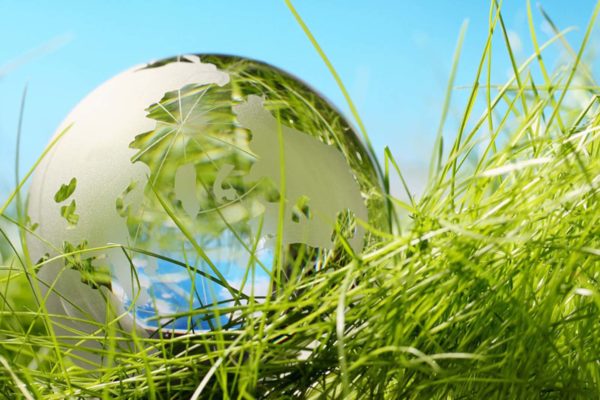 The SDGs are not legally binding, and this is why this study seeks to establish whether Islamic ethics or moral code can serve to morally reinforce the SGDs.
The SDGs are not legally binding, and this is why this study seeks to establish whether Islamic ethics or moral code can serve to morally reinforce the SGDs.
Nevertheless, UN member states are expected to take ownership and establish a national framework for achieving the seventeen Goals. Implementation and success will rely on countries own sustainable development policies, plans and programmes. Member states have the primary responsibility for follow-up and review, at the national, regional and global levels, with regard to the progress made in implementing the Goals and Targets over the next fifteen years. Actions at the national level to monitor progress will require quality, accessible and timely data collection and regional follow-up and review.[8]
Malaysia and its implementation of the SDGs
Voluntary National Review 2017
According to the previous Malaysian Government, sustainable development had been at the heart of its development approach since the 1970s, when the New Economic Policy (NEP) was formulated to eradicate poverty and restructure societal imbalances. All subsequent five-year national development plans have underscored the elements of sustainable development encompassing sustainable economic growth. Growth with equitable distribution to all sections of society; balanced development access to basic infrastructure and utilities; access to education and healthcare services; and *mainstreaming of environmental conservation.
In the year 2009, Malaysia renewed its commitment to sustainable development when the government launched the New Economic Model (NEM), which features three goals achieving high income, inclusivity and sustainability. These mirror the three elements of the 2030 UN Agenda, encompassing economic, social and environmental elements. The NEM provides the basis for Malaysia’s development plans until the year 2020.
The current plan, the Eleventh Malaysia Plan 2016-2020 (11MP), is thus premised on the three goals of NEM. The 11MP theme is “Anchoring Growth on People” where people are the centerpiece of all development efforts, complemented by ensuring that no section of society is left behind in participating and benefitting from the nation’s development. Critically, the 11MP is aligned to most of the global Sustainable Development Goals (SDGs). Therefore, Malaysia is not starting anew on its pathway to sustainable development, but is building on a process already in motion for decades.[9]
Key Development Achievements in Malaysia in terms of SDGs.
Malaysia’s key development achievements in terms of SDGs as of the year 2015, in relation to SDGs No. 13, 14 and 15, include the following:
Firstly, in relation to SCP & Climate Change, Malaysian has attained RM429 millions of green government procurement since 2013 and carbon intensity of its economy has been reduced by 33 per cent (%) since 2009, increasing renewable energy capacity. Secondly, in relation to Environmental Endowment, Malaysia has maintained 55.2 per cent forest cover, 12.1 per cent (%) as terrestrial protected area and 3.36 per cent (%) as marine protected areas. Malaysia participates in international trans-boundary conservation effort, namely, Heart of Borneo (HoB) initiatives for Forests[10] and Coral Triangle Initiatives for marine areas.[11]
Malaysia SDG Summit 2019[12]
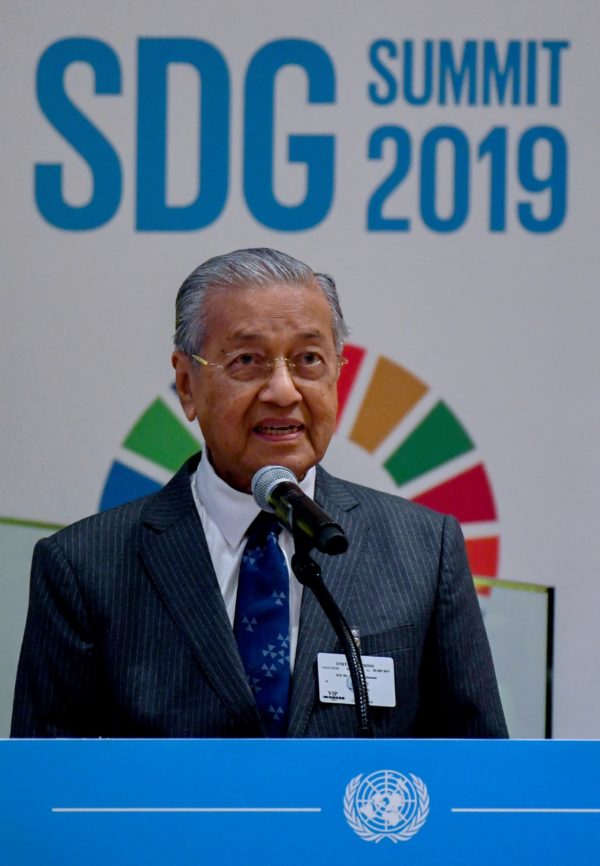
The Prime Minister declared the SDGs will continue to be embedded in the recently launched Shared Prosperity Vision (SPV 2021-2030), Malaysia’s new development model, which aims to bridge the income and wealth gaps between economic classes, ethnic groups and geographical territories, and will ensure inclusive development and fulfil the objective of not leaving anyone behind. The overarching philosophy of development for all with a specific thrust that intends to address wealth and income disparities and in turn, achieve the objectives of becoming a united, prosperous and peaceful nation. Significantly, it is observed, the SPV blue-prints or roadmaps in developing Malaysia are underpinned by one common factor – sustainable development. They are Malaysia’s commitment to sustainable development and policies and strategies will continue to align themselves on the same path. An institutional framework has been put in place to facilitate the operationalisation of the SDGs at all levels, to ensure coordinated action involving all sectors of society. Malaysia faces an array of global challenges, the chief one being climate change,[13] but the 2030 Agenda is regarded as the collective key to unlocking hope and opportunities in facing those challenges.[14]
Malaysia Baru Government Islamic administrative vision[15]
On 7th January, 2019, the Malaysia Baru government adopted the Rahmatan lil-ālamin” vision[16] and slogan, to usher in an ethical value-loaded administrative policy[17] that will apply the objectives of the Islamic Shari’a (maqāsid ash-Shari’ā)[18] to implement the Government’s national mission to achieve its objectives (maqāsid), guarantee benefit (kemaslahatan), restrict harmfulness (kemudaratan) and reject human mischief (kerosakan).
According to Muslim scholars, the expression Rahmatan lil-‘ālamin carries within it, the Divine Exhortation to love, unity and tolerance among humankind. It is observed that this humanistic aspect of the administrative policy is a significant step forward for Malaysia Baru. Maqāsid Shari’ā, an Ash-Shatibi juristic concept affirmed by the majority of Sunni legal jurists, refers to the worldly (dunyawī) purposes of law, which are necessary for the preservation of religion (deen), life (nafs), progeny (nasl), intellect (‘aql) and wealth (māl).
The Rahmatan lil-ālamin slogan heralded an administrative policy which upholds universal Islamic ethical values in a multi-racial, multi-faith society, with a diverse history. By so doing, the government has positioned itself as a Malaysian model of a Muslim majority nation to the world.
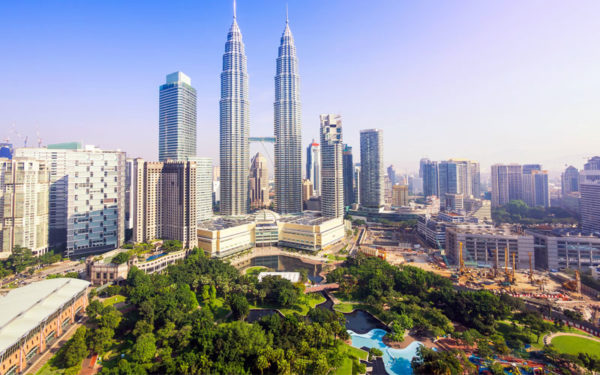 In this study, it is opined and underscored that the Rahmatan lil-ālamin vision is significant in relation to Malaysia’s continuing commitment to sustainable development and towards achieving the UN 2030 Agenda SGDs. It is now possible to apply Islamic ethics - as opposed to law - with deliberation and increased effectiveness, in the running of the country and to address and counter any unsustainable development administrative practices or omissions of the past, if any. And with the new institutional framework that has recently been put in place to facilitate the operationalisation of the SDGs at all levels to ensure coordinated action involving all sectors of society, Malaysia Baru is positioned to demonstrate the Rahmatan lil-ālamin” vision and slogan which will be implementable in relation to its SDGs commitment, under its Shared Prosperity Vision (2021-2030).
In this study, it is opined and underscored that the Rahmatan lil-ālamin vision is significant in relation to Malaysia’s continuing commitment to sustainable development and towards achieving the UN 2030 Agenda SGDs. It is now possible to apply Islamic ethics - as opposed to law - with deliberation and increased effectiveness, in the running of the country and to address and counter any unsustainable development administrative practices or omissions of the past, if any. And with the new institutional framework that has recently been put in place to facilitate the operationalisation of the SDGs at all levels to ensure coordinated action involving all sectors of society, Malaysia Baru is positioned to demonstrate the Rahmatan lil-ālamin” vision and slogan which will be implementable in relation to its SDGs commitment, under its Shared Prosperity Vision (2021-2030).
Intersections of Qur’an and the 2030 United Nations’ Agenda SDGs
In relation to God, it is revealed in the Qur’ān:
“Now, behold, this [divine writ] has indeed been bestowed from on high by the Sustainer of all the worlds” [Sūra ash-Shūrā, 26: 192]
“Say: He is the One God; God the Eternal, the Uncaused Cause of All Being. He begets not, and neither is He begotten; and there is nothing that could be compared with Him. [Sūra al-Ikhlās, 112: 1-4]
It may be inferred from the above verses that Islamic ethics are imbued with God’s attributes (sifāt) and essence (ma’rifat), and is therefore eternal, immutable and universal in character. The Qur’an refers to itself as:
“the standard by which to discern the true from the false, so that to all the world it might be a warning;” [Sura al-Furqān, 25:1],
“a standard by which to discern the true from the false;”[Surah Al-Anfāl, 8: 29]
and
“a light and a reminder for the God-conscious.” [Sura al-Anbiyā’, 21 :48].
Further it is revealed in the Qur’ān:
“No single thing have We neglected in Our decree.” [Surā al-An-ām, 6:38]
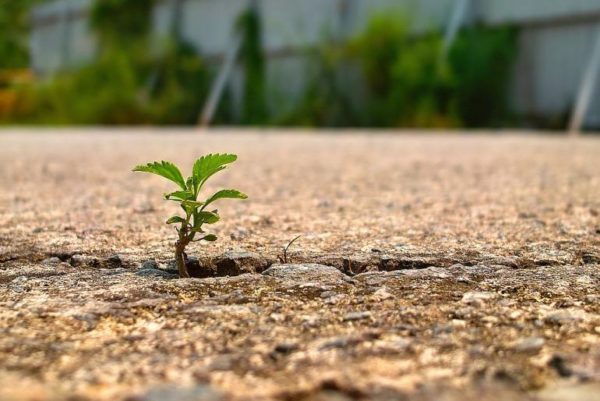 Islamic ethics is not ascetic nor monastic as is the case of some religion-based morality. It regards economic enterprise and the production of goods and services as necessary and beneficial to fulfil societal material needs and convenience, and classifies it as part of collective responsibility (fard kifāya). However, the first five purposes of the higher intention of the Shari’ā or known as maqāsid al-sharī’a, the preservation of religion (deen), life (nafs), progeny (nasl), intellect (‘aql) and wealth (māl) must be complied with.[19] Consequently, Islamic economics is based on ‘distributive justice’.[20] The social function of wealth is to help remove disequilibrium and disparities and help establish equilibrium, justice and prosperity for all.[21]This fundamental Islamic concept of ‘distributive justice’ is in the spirit of the UN SDGs.
Islamic ethics is not ascetic nor monastic as is the case of some religion-based morality. It regards economic enterprise and the production of goods and services as necessary and beneficial to fulfil societal material needs and convenience, and classifies it as part of collective responsibility (fard kifāya). However, the first five purposes of the higher intention of the Shari’ā or known as maqāsid al-sharī’a, the preservation of religion (deen), life (nafs), progeny (nasl), intellect (‘aql) and wealth (māl) must be complied with.[19] Consequently, Islamic economics is based on ‘distributive justice’.[20] The social function of wealth is to help remove disequilibrium and disparities and help establish equilibrium, justice and prosperity for all.[21]This fundamental Islamic concept of ‘distributive justice’ is in the spirit of the UN SDGs.
That is why the Qur’an keeps emphasising the fact importance of this social justice. Muhammad Asad is his commentary on one of the chapters in the Qur’an that focuses on this theme of social justice, Sura al-Balad (The City), verses 12 and 13:
“And what could make thee conceive what it is, that steep uphill road? [it is] the freeing of one’s neck [from the burden of sin]”
To him, the phrase in the Qur’an ‘fakku raqabah’ which may be rendered as ‘the freeing of a human being from bondage’, also covers all those forms of subjugation and exploitation – social, economic, political – which can be rightly described as ‘slavery’. The ultimate aim of the Qur’an is to exhort the idea of distributive justice.
And according to the contemporary Islamic jurists, Islamic ethics have several inter-related facets. These include: unity of God (tauhīd), vicegerancy (khalīfa), accountability (taklīf), equilibrium/justice and equity (‘adl), and benevolence (ihsān).
Firstly, the oneness or ‘unity of God’ (tauhīd) is central to Islamic belief and morality. The concept of the unity of God combines into a homogenous whole all the different aspects of life and stresses the idea of consistency and order throughout. This is the vertical dimension of Islam.[22] God created man and honoured him above all other creations by giving him intellect and free will. A Muslim chooses to submit his will to God based on his own freewill. He agrees to behave according to God’s commandment and his entire life should become one of submission to God in accordance with the Qur’an. This should apply to all aspects of life.
Secondly, the concept of unity of God is also closely related to another concept, that is, of vicegerency (khalifa). In the Qur’ān, it is revealed:
“Behold, I am about to establish upon earth one who shall inherit it.” [Sura al-Baqara, 2: 30] [23]
Under this concept, man is conferred not only a position of honour, but also the trust (amāna) which, primordial man accepted God in this case, over nature’s resources and consequently, from the economic perspective, the sources of economic production. Man may acquire property through lawful means and enjoy the benefits of ownership of such property [Sura al-Baqara, 2: 188][24]. But he is responsible to God for such possessions as they are merely a delegated right of ownership (private and public) from the ultimate owner, God.[25] Further, the right to use and benefit from one’s property (māl) must not be exercised at the expense of the community’s interest.
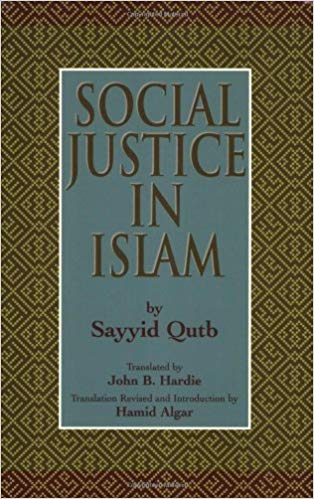 This point was clearly articulated by a Muslim ideologue and martyr, Sayyid Qutb, in his book ‘Al-‘Adalat al-Ijtima’iyyah fi ‘l-Islam’ or ‘Social Justice in Islam’[26] that the cardinal principle is that Islam ratifies along with that of the right of individual possession in that the individual is in a way a steward of his property on behalf of society; his tenure of property is more of a duty than an actual right of possession. Property in the widest sense is a right that can belong only to society, which in turn receives it as a trust from Allah who is the only owner of anything.
This point was clearly articulated by a Muslim ideologue and martyr, Sayyid Qutb, in his book ‘Al-‘Adalat al-Ijtima’iyyah fi ‘l-Islam’ or ‘Social Justice in Islam’[26] that the cardinal principle is that Islam ratifies along with that of the right of individual possession in that the individual is in a way a steward of his property on behalf of society; his tenure of property is more of a duty than an actual right of possession. Property in the widest sense is a right that can belong only to society, which in turn receives it as a trust from Allah who is the only owner of anything.
Thirdly, under the Islamic concept of accountability (taklīf), God has not only created man with intellect, but also worldly desires (nafs ammāra) which the exercise of free will enable him to resist. It is revealed in the Qur’ān:
“Every human being will be held in pledge for whatever [evil] he has wrought.” [Sura al-Muddaththir, 74:38][27]
Man is thus, morally accountable for his action or inaction in this world and in the Hereafter. A juristic distinction is drawn between individual responsibility (fard’ ‘ayn) and collective responsibility (fard’ kifāya). Islam lays down the principle of mutual responsibility in all its various forms. In it is to be found the responsibilities which exist between a man and his soul, between a man and his immediate family, between the individual and society, and between community and other communities.”[28]
Fourthly, the concept of equilibrium (‘adl) as illustrated in the order and harmony to be found in nature and the universe, must also underlie business practices.[29] It is submitted that equilibrium is best illustrated in the Islamic concept of ‘distributive justice’ and its objectives to create an equitable society through distribution of wealth and the eradication of poverty. The Qur’an says:
“….so that it may not be [a benefit] going round and round among such of you as may [already] be rich.” [Sura al-Hashr, 59: 7].
The Qur’ān emphatically condemns excessive love of wealth which is the source of avarice, hoarding, monopoly, usury (ribā) and all kinds of exploitative and unjust social practices. Al Ghazāli, the Muslim scholar and jurist, suggested that the concept of ‘adl includes not only ‘equilibrium’ but also ‘justice and equity’. It is also revealed in the Qur’ān:
“…be just: this is closest to being God-conscious,” [Sura al-Māidā, 5: 8]
Fifthly, benevolence (ihsān) (any act which benefits persons other than those from whom the act proceeds without any obligation)[30] is encouraged.
According to the Prophet’s Traditions (Sunna), Prophet Muhammad (peace be upon him) was reported to have said:
“Allah has made it obligatory to adopt a benevolent attitude towards everything…”[31]
The Prophetic Tradition is mentioned as it complements the general and sometimes ambiguous provisions of the Qur’ān. It also specifies the permissible (halāl) and the prohibited (harām), and the degree of lawfulness of key types of behaviour in Islamic morality.[32]
The foregoing paragraphs study of the intersections between the concept of Rahmatan lil-ālamin and the SGDs, reveal that the said Qur’ānic verses constitute the perennial and universal spiritual values from “the Sustainer of all the worlds” [Sūra al-Fātiha, 1: 2] and which form the foundation of Islamic Ethics, enforceable in the Hereafter when humankind shall be called to account. On the other hand, the United Nations’ SGDs emanate from the universal humanistic ethical values (religious or non-religious based) of a “global partnership for sustainable development” among humankind of an international organisation and form a body of non-binding and legally unenforceable rules. Whilst the Qur’ānic verses constitute a revealed moral code of conduct, being primarily general moral exhortations, spiritual admonishment and reminders to be righteous, the specific provisions of the SGDs are orientated to implementing a plan of action for People and Planet.
 The intersections between the Rahmatan lil-ālamin verse and the SGDs, also reveal that both recognise humankind as responsible for the condition of People and Planet and that humankind is accountable for its actions. Material development and prosperity can be seen on both land and sea, but then this development is accompanied with corruption to human being due to their greed and devastating destruction to the environment. But many might not have realised that God had reminded us about this destruction on the earth and seas as an outcome of what men’s hands have wrought.
The intersections between the Rahmatan lil-ālamin verse and the SGDs, also reveal that both recognise humankind as responsible for the condition of People and Planet and that humankind is accountable for its actions. Material development and prosperity can be seen on both land and sea, but then this development is accompanied with corruption to human being due to their greed and devastating destruction to the environment. But many might not have realised that God had reminded us about this destruction on the earth and seas as an outcome of what men’s hands have wrought.
[Since they have become oblivious of God,] corruption has appeared on land and in the sea as an outcome of what men’s hands have wrought: and so He will let them taste [the evil of] some of their doings, so that they might return [to the right path]. [Sūra ar-Rūm, 30: 41]
Similarly, He mentioned in Chapter seven of the Holy Qur’an:
“Hence, do not spread corruption on earth after it has been so well ordered. And call unto Him with fear and longing: verily, God's grace is ever near unto the doers of good!” [Sura al-A’raf: 7: 56]
The Qur’an is also replete with verses exhorting man to preserve the environment and not to spread corruption (fasad) on earth.
“And when they are told, "Do not spread corruption on earth," they answer, "We are but improving things!" [Sūra al-Baqara, 2: 11].
The SGDs take it further in specifying humankind’s responsibility to People and Planet and in calling for concerted effort in explicit terms of “economic growth, social inclusion and environmental protection” to build an inclusive, sustainable and resilient future for People and Planet.
The intersections between the concept of Rahmatan lil-ālamin and the SGDs also reveal common socio-economic concerns and the importance of social equity and justice for fellow humankind. The SDG’s goal to reduce inequality was propounded in the Qur’an in Sūra Al-Hashr, 59: 7 where God prohibited wealth to be circulated solely among the rich. All in all, the Qur’anic idea of justice in the spirit of Rahmatan lil-ālamin is that, all that man possesses, therefore, is but held in trust from God. Hence the Qur’an exhorts to the corrective measures of poverty eradication. He praises those who gave their food to the needy, orphans, and the captives.
The Qur’an says:
“And who give food - however great be their own want of it - unto the needy, and the orphan, and the captive” [Sura ad-Dahr, 76: 8]
 The erudite Muhammad Asad in his commentary of the verse says that the term asir denotes anyone who is a “captive” either in its literal form or figuratively, like a captive of circumstances which render him helpless. The injunction of this kindness towards all those who are in need of help, and therefore “captive” in one sense or another. And this applies to both believers and non-believers alike, and apparently also to animals who are dependent on man.
The erudite Muhammad Asad in his commentary of the verse says that the term asir denotes anyone who is a “captive” either in its literal form or figuratively, like a captive of circumstances which render him helpless. The injunction of this kindness towards all those who are in need of help, and therefore “captive” in one sense or another. And this applies to both believers and non-believers alike, and apparently also to animals who are dependent on man.
Similarly in order to achieve social justice, the Qur’an encourages the rich to offer help and assistance to the deprived members of the society in order alleviate poverty, if not to eradicate it. This is the whole idea of “sadaqa” where the haves among the society would donate and perform charity in the way of God to help fellow human beings, irrespective of creed and race.
“O YOU who have attained to faith! Spend [in Our way] out of what We have granted you as sustenance ere there come a Day when there will be no bargaining, and no friendship, and no intercession. And they who deny the truth -it is they who are evildoers!” [Sura al-Baqara, 2: 254]
The Islamic ethical perspective on the environment
To see the intersection between the Qur’an and the SGDs relating to the environment, the Islamic ethical perspective on the environment and humankind’s relationship with it, are dealt with here. The verse Rahmatan lil-ālamin” [Sūra al-Anbiyā’, 21: 107] and other related revealed verses are studied here for that purpose.
“And [thus, O Prophet,] We have sent thee as [an evidence of Our] grace towards all the worlds (Rahmatan lil-ālamin).” [Sura al-Anbiyā’, 21: 107]
Unity of God (tauhīd) is at the centre of the Islamic conception of the relationship between man and nature. Nature is God’s creation and gift. As creation, it is teleological, perfect and orderly. As a gift it is a good, placed at the disposal of man. In nature’s perfect order, which is God-Given [Sura al-Ankabūt, 29: 44][33]and God-Sustained, every living thing, inanimate object, and event has been planned. In the Qur’ān, it is revealed:
“Yea, turn thy vision [upon it] again and yet again: [and every time] thy vision will fall back upon thee, dazzled and truly defeated” [Sura al-Mulk, 67: 4]
All creatures are created inter-dependent, and this inter-dependency acts as a balance in nature’s perfect order, and contributes to the well-being of all. In that order, every creature has its destiny and is endowed with a propensity to move in the direction of self-fulfillment.[34] The order of nature has a purpose, a meaning, and this meaning has spiritual and moral significance for man.[35] The inseparable link between man and nature, and also between the sciences of nature and religion, is to be found in the Qur’an itself.[36]
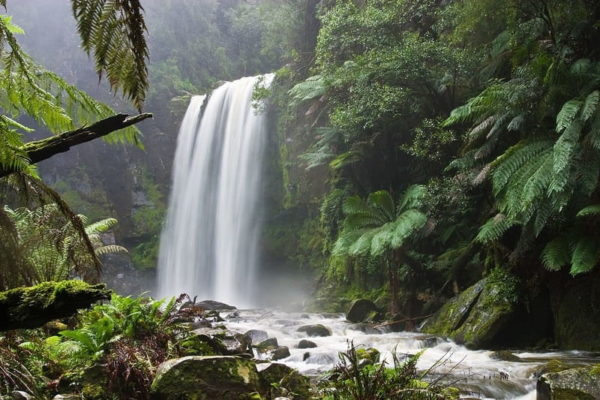 Nature was created so that man may enjoy God’s bounty. Man only has a tenure which is granted by God for the end prescribed by Him. As a tenant, man is responsible for the environment during his tenure. In contrast to the right of ownership, man holds the right of usufruct (right to occupy and use land as opposed to ownership) which does not entitle him to destroy nature. He cannot exploit nature to the extent that its ecological balance is upset and ruined. It follows that Islamic ownership is not absolute, especially if they may lead to environmental degradation, pollution and threaten public safety and health.
Nature was created so that man may enjoy God’s bounty. Man only has a tenure which is granted by God for the end prescribed by Him. As a tenant, man is responsible for the environment during his tenure. In contrast to the right of ownership, man holds the right of usufruct (right to occupy and use land as opposed to ownership) which does not entitle him to destroy nature. He cannot exploit nature to the extent that its ecological balance is upset and ruined. It follows that Islamic ownership is not absolute, especially if they may lead to environmental degradation, pollution and threaten public safety and health.
Although man can intervene with the order of nature and even gain domination over it, he is given this power only because he is the vicegerent (khalīfa) of God on earth and the instrument of His Will.
“Behold, I am about to establish upon earth one who shall inherit it.” [Sura al-Baqara, 2: 30] [37]
At his death, man is supposed to return to God what he has been entrusted with, [Sura al-Ahzāb, 33: 72][38]in a better state than when he received it. In his usufruct and enjoyment of nature, man is to act morally and prove himself ethically worthy. Monopoly, hoarding and exploitation are strictly prohibited.
“Verily, We did offer the trust [of reason and volition] to the heavens, and the earth, and the mountains: but they refused to bear it because they were afraid of it. Yet man took it up…” [Sura al-Ahzāb, 33: 72]
Extravagance, wasteful and ostentatious consumption are discouraged, instead man is encouraged to be content and to express his gratitude for what God has provided.
“And give his due to the near of kin, as well as to the needy and the wayfarer, but do not squander [thy substance] senselessly. Behold, the squanderers are, indeed, of the ilk of the satans – inasmuch as Satan has indeed proved most ungrateful to his Sustainer. And if thou [must] turn aside from those [that are in want, because thou thyself art] seeking to obtain thy Sustainer’s grace and hoping for, at least speak unto them with gentle speech. And neither allow thy hand to remain shackled to thy neck, nor stretch it forth to the utmost limit [of thy capacity], lest thou find thyself blamed [by thy dependents], or even destitute. Behold, thy Sustainer grants abundant sustenance, or gives it in scant measure, unto whomever He wills: verily, fully aware is He of [the needs of] His creatures, and sees them all.” [Sura al-Isrā, 17: 26 - 30]
A generally constructive agricultural and environmental policy was pursued by Prophet Muhammad (peace be upon him). With respect to common lands, he established the policy that “he who fells down a tree [from the common land] should replace it with a sapling, thus replanting the forest.”
The environment crisis is an external reflection of modern man’s spiritual crisis. In the Qur’ān, it is revealed:
“[Since they have become oblivious of God,] corruption has appeared on land and in the sea as an outcome of what men’s hands have wrought: and so He will let them taste [the evil of] some of their doings, so that they might return [to the right path].” [Sūra ar-Rūm, 30: 41]
Thus far, we have shown that almost everything that is espoused by the SDGs were in tandem with the spirit and ethics promoted by the Qur’an. And the foregoing paragraphs on the Islamic perspective on the relationship between humankind and the environment demonstrate two significant intersections between the Qur’ān and the United Nations SDGs. Firstly, both place the duty and responsibility to preserve and conserve the world’s natural resources on humankind. Secondly, both are concerned about depleting natural resources on which all life on the Planet depends upon, the unsustainable consumption and exploitation of these resources, and the need to manage or control consumption of these resources.
Conclusion
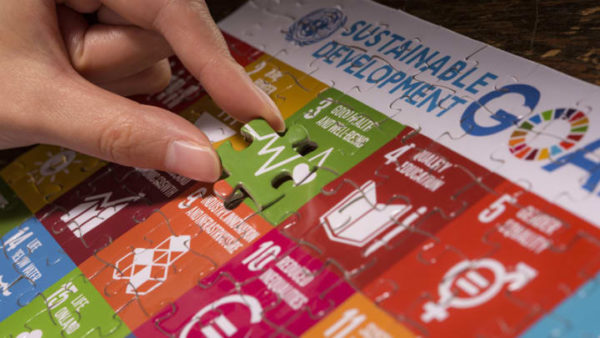 This study has established that the perennial and universal Islamic ethical values can serve to morally reinforce the “universal goals” for sustainable development by a “global partnership” of United Nations member states. It also establishes that the same ethical values which form the foundation of Islamic faith, provide Muslim or Muslim majority member states with the moral and spiritual justification and persuasion for the implementation of the non-legally binding sustainable development goals. Malaysia Baru, with its recently adopted Rahmatan lil-ālamin administrative policy, is therefore positioned to serve as a global role model and regional leader to address unsustainable development issues in South-East Asian Muslim or Muslim-majority countries, through national and international smart public-private partnerships. And it is strongly recommended that Climate Change should be the at the forefront of these sustainable development ventures
This study has established that the perennial and universal Islamic ethical values can serve to morally reinforce the “universal goals” for sustainable development by a “global partnership” of United Nations member states. It also establishes that the same ethical values which form the foundation of Islamic faith, provide Muslim or Muslim majority member states with the moral and spiritual justification and persuasion for the implementation of the non-legally binding sustainable development goals. Malaysia Baru, with its recently adopted Rahmatan lil-ālamin administrative policy, is therefore positioned to serve as a global role model and regional leader to address unsustainable development issues in South-East Asian Muslim or Muslim-majority countries, through national and international smart public-private partnerships. And it is strongly recommended that Climate Change should be the at the forefront of these sustainable development ventures

Dato’ Dr Ahmad Farouk Musa is a Founder and Director at the Islamic Renaissance Front.
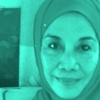 Marilyn Ong Siew Ai is a Research Fellow at the Islamic Renaissance Front.
Marilyn Ong Siew Ai is a Research Fellow at the Islamic Renaissance Front.
This essay was presented at The International Conference on Nation Building 2019: Connecting Government, Business, and Civil Society towards the Development of a High-Income Nation, November 26 & 27 2019 at Majestic Hotel, Kuala Lumpur, Malaysia.
[1] Toynbee, Arnold (1958). “A Study of History.” (Abridgement by D.C. Somervelle), Vol.2, p.380 and Vol.1, n.np., n.pp. 495-496.
[2]All the translations used in this essay are from The Message of the Qur’an by Muhammad Asad, considered as the best translation in English today.
[3] United Nations (2015). “Transforming Our World: The 2030 Agenda for Sustainable Development A/RES/70/1.” Available at: https://www.un.org/sustainabledevelopment/development-agenda. (Accessed on 9th Nov., 2019).
[4] Preamble “This Agenda is a plan of action for people, planet and prosperity”.
[5] It is important to specify which type of sustainability one is dealing with as they are all so different and should not be fused together, although some overlap to a certain extent. The environmental SDGs are Goal (13) Take urgent action to combat climate change and its impact; Goal (14) Conserve and sustainably use the oceans, seas and marine resources for sustainable development; Goal (15) Protect, restore and promote sustainable use of terrestrial ecosystems, sustainably manage forests, combat desertification, and halt and reverse land degradation and halt biodiversity loss.
[6] Available at: https://unstats.un.org/sustainabledevelopment/developmentagenda/#1b1981a30bdd8fde2(Accessed on: 10th Nov., 2019).
[7] There was no mention of “sustainability” in the UN Millennium Development Goals.
[8] United Nations (2015). “Transforming Our World: The 2030 Agenda For Sustainable Development A/RES/70/1.” Available at: https://www.un.org/sustainabledevelopment/development-agenda. (Accessed on 9th Nov., 2019).
[9] Available at: https://sustainabledevelopment.un.org/memberstates/malaysia (Accessed on 9 Nov. 2019).
[10] An example is the pilot project, Sustainable Forest Management in East Malaysia: Kuba’an Puak Forest Management Unit (FMU), Ulu Tutoh, Baram, Sarawak, which started in early 2015. The main goal of the project is to develop a model for sustainable forest management which is environmentally friendly, economically successful and socially appropriate. The project area spans about 360,000 hectares covering multiple forest management units, between 3 national parks. The HoB Corridor initiative involves Brunei, Indonesia and Malaysia.
[10] November 6, 2019, Plenary Hall, KL Convention Centre.
[11] United Nations (2019). The Sustainable Development Goals Report (2019). Available at: https://unstats.un.org. https://sdgindex.org. An example is the pilot project, Sustainable Forest Management in East Malaysia: Kuba’an Puak Forest Management Unit (FMU), Ulu Tutoh, Baram, Sarawak, which started in early 2015. The main goal of the project is to develop a model for sustainable forest management which is environmentally friendly, economically successful and socially appropriate. The project area spans about 360,000 hectares covering multiple forest management units, between 3 national parks. The HoB Corridor initiative involves Brunei, Indonesia and Malaysia.
[12] November 6, 2019, Plenary Hall, KL Convention Centre.
[13] Climate change challenges relate to four major areas: (1) the degradation of forest, marine and freshwater resources; (2) Increases in certain hydro-meteorological and geomorphological events; (3) The decline in food production capacities and other environmentally driven economic systems; and (4) Climate change’s ethical-justice issues such as environmentally induced displacements and migration, the deprivation and sustenance of certain livelihood activities, and the safety and well-being of the more marginalised sectors of society. It is therefore crucial that we find the right balance between growth and measures needed to address climate change, environmental degradation and sustainable utilisation of Malaysia’s natural endowment.
[14] Available at: https://www.pmo.gov.my/2019/11/malaysia-sdg-summit-2019/ (Accessed on: 10th Nov., 2019).
[15] Gagasan pentadbiran Islam di era Malaysia Baharu.
[16] Presented by the Member of Parliament, YB Dtk. Seri Dr. Mujahid Yusof, Minister in Prime Minister’s Department (Islamic Affairs) on 7/1/19 at Auditorium, Jabatan Kemajuan Islam Malaysia, Kuala Lumpur.
[17] Its Islamic administrative direction is based on 7 clusters:- (1) Law and Judiciary, (2) Education and Human Development, (3) Missionary (Dakwah) & media, (4) Socio-Economic (5) Masjid management, (6) Research and Maqāsid Culture.
[18] The higher intention of lslamic jurisprudence was juristically determined by Ash-Shatibi and agreed to by most Sunni legal jurists are the preservation of religion (deen), life (nafs), progeny (nasl), intellect (‘aql) and wealth (māl). These purposes of law are classified as necessities.
[19] Nyazee, Imran Ahsan Khan (1981). “Theories of Islamic Law, The Methodology of Ijtihād.” Perspectives on Islamic Thought-3, IIIT. Pakistan.
[20] Idem, 238.
[21] Haq, Irfan Ul (1995). “Economic Doctrines of Islam.” IIIT. Academic Dissertations No.3. USA.156.This fundamental concept of ‘distributive justice’ is in the spirit of the UN SDGs.
[22] Faruqi, Ismail R. (1982). “Al—Tawhid: Its Implications for Thought and Life.” IIIT. Herndon, VA, USA, 1982.
[23] Idem, 96.
[24] “AND DEVOUR NOT one another's possessions wrongfully, and neither employ legal artifices with a view to devouring sinfully, and knowingly, anything that by right belongs to others. [Sura al-Baqara; 2: 188]
[25] Ahmad, Mustaq (1995). “Business in Islam” IIIT & III Economics. Islamabad Pakistan. 45.
[26] Qutb, Sayyid. (2000) “Social Justice in Islam” (revised edition by John Hardie and Hamid Algar), 132.
[27] Asad, Muhammad (1980). “The Message of The Qur’ān”. Dar al-Andalus: Gibraltar.
[29] Beekun, Rafik Issa (1981). Islamic Business Ethics, Human Development Series No.2, USA:IIIT. 21-23.
[30] Umar-ud-din, Muhammad. ‘The Ethical Philosophy of Al-Ghazāli”. n.np., n.pp., n.d. 241.
[31] Abbasi, S.M. Madni (Trans.). “Riyād al-Sālihin”. Kitab Bhavan Publisher. 4th Ed., n.np. New Delhi: India. 351- 353.
[32] In Islamic jurisprudence (fiqh), five classes of unlawfulness, have been enunciated i.e. mandatory (fardu), highly recommended (mustahabb), permissible (mubāh), destested (makrūh), prohibited (harām).
[33] Asad, Muhammad (1980). ‘[And hence are certain that] God has created the heavens and the earth in accordance with [an inner] truth: for, behold, in this [very creation] there is a message indeed for all who believe [in Him].’
[34] Faruqi, Ismail R. (1980). “Islam and Culture”. Angkatan Belia Islam Malaysia (ABIM). Kuala Lumpur, Malaysia. 29.
[35] Nasr, Seyyed Hossein (1976) Mandela Ed. “Man and Nature: The Spiritual Crisis of Modern Man.” George Allen and Unwind Limited, London, 1968.
[38] Ibid.
BIBLIOGRAPHY
Asad, Muhammad (1980). “The Message of The Qur’ān”. Dar al-Andalus: Gibraltar.
Mustaq, Ahmad (1995). “Business in Islam.” IIIT & III Economics. Islamabad : Pakistan, 1995.
Al-Faruqi, Ismail R. (1980). “Islam and Culture.” Angkatan Belia Islam Malaysia (ABIM). Kuala Lumpur, Malaysia.
____________ (1982) “Al—Tawhid: Its Implications for Thought and Life.” IIIT, Herndon, VA: USA.
____________ & Al-Faruqi, Lois Lamya (1986). “The Cultural Atlas Of Islam.” Macmillan Publishing Company. NY, USA.
Beekun, Rafik Issa (1981). “Islamic Business Ethics.” Human Development Series No.2. IIIT. USA
Economic Planning Unit, Prime Minister’s Department, Government of Malaysia (2017). “Malaysia, Sustainable Development Voluntary National Review 2017, High Level Political Forum”. Available at: https://www.epu.gov.my (Accessed on 9 Nov. 2019).
Haq, Irfan Ul (1995). “Economic Doctrines of Islam.” IIIT, Academic Dissertations No.3. USA.
Nasr, Seyyad Hossein (1986). “Man and Nature: The Spiritual Crisis of Modern Man.” George Allen and Unwind Limited. London, UK.
Nyazee, Imran Ahsan Khan (1981). “Theories of Islamic Law, The Methodology of Ijtihād.” Perspectives on Islamic Thought-3, IIIT. Pakistan.
Qutb, Sayyid (2000). “Social Justice in Islam.” Islamic Publication International, New Jersey, USA.
Umar-ud-din, Muhammad. “The Ethical Philosophy of Al-Ghazāli.” n.np., n.pp., n.d..
United Nations (2015). “Transforming Our World: The 2030 Agenda For Sustainable DevelopmentA/RES/70/1”..Available..at: https://www.un.org/sustainabledevelopment/development-agenda (Accessed on 9th Nov., 2019).
____________(2019). “The Sustainable Development Goals Report.” Available at: https: sdgindex.org/reports/sustainable-development-report-2019/ (Accessed on 9th Nov., 2019).
World Commission on Environment and Development (1987). “Our Common Future.” Oxford University Press. Oxford, UK.